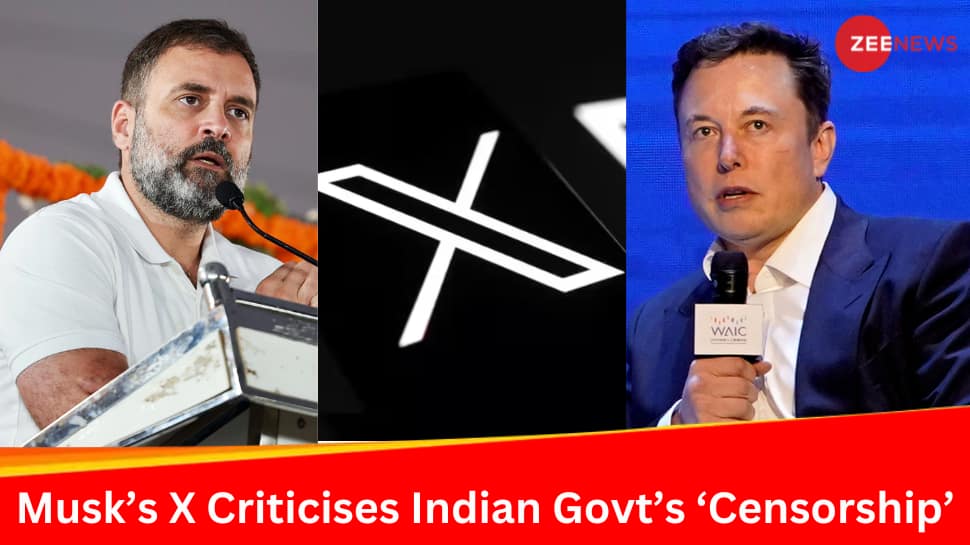


Congress leader Rahul Gandhi expressed concerns over the opacity and lack of scrutiny in India's electoral process, citing a post by Tesla and X CEO Elon Musk advocating for the elimination of Electronic Voting Machines (EVMs). This comes amidst a controversy in Maharashtra where a relative of a Shiv Sena candidate was found using a phone connected to the EVM, leading to demands for a full count of VVPAT slips and a call for use of traditional paper ballots by opposition parties.
Electronic Voting Machines (EVMs): Concerns and Controversies
Background
Electronic Voting Machines (EVMs) were first introduced in India in 1998 as a means to enhance the efficiency, accuracy, and transparency of the electoral process. They replaced paper ballots and involved the use of electronic devices to record the votes of electors.
Over the years, EVMs have faced criticism and concerns regarding their opacity, lack of scrutiny, and potential for manipulation. These concerns have been raised by political parties, activists, and citizens alike.
Current Controversy
The recent controversy surrounding EVMs in India revolves around the concerns raised by Tesla and SpaceX CEO Elon Musk. Musk tweeted about the importance of verifying voting systems and expressed skepticism towards the use of EVMs.
This tweet ignited a debate in India, with Congress leader Rahul Gandhi echoing the concerns and calling for reforms in the electoral process. Following a controversy in Maharashtra where a relative of a Shiv Sena candidate was found using a phone connected to an EVM, opposition parties have demanded a full count of VVPAT slips and a return to traditional paper ballots.
Top 5 FAQs and Answers
1. What are EVMs?
EVMs are electronic devices used to record votes in elections. They consist of a Control Unit (CU) and a Ballot Unit (BU). The CU is responsible for controlling the voting process, while the BU displays the names of candidates and allows electors to cast their votes.
2. Are EVMs hackable?
The Election Commission of India (ECI) maintains that EVMs are not hackable and are designed with multiple layers of security to prevent manipulation. However, critics have expressed concerns about the possibility of tampering with the software or hardware of EVMs.
3. What are the concerns with EVMs?
Concerns with EVMs include:
4. What are VVPAT slips?
VVPAT (Voter Verifiable Paper Audit Trail) slips are paper slips generated by EVMs that provide a physical record of the vote cast. These slips allow electors to verify that their vote has been correctly recorded.
5. What are the alternatives to EVMs?
Some of the alternatives to EVMs include:
Conclusion
The ongoing debate over EVMs in India highlights the importance of ensuring transparent, accurate, and reliable electoral processes. While EVMs have their advantages, concerns about their opacity and potential for manipulation persist. The ECI has a crucial role to play in addressing these concerns and fostering public confidence in the electoral system.

The Supreme Court has put a temporary hold on the Kerala High Court's ruling that 404.76-acre Munambam land is not Waqf property. This came after a Special Leave Petition was filed by the Kerala Waqf Samrakshana Vedhi, which contested the High Court's verdict. The Court clarified that despite the stay, the State Government was right in appointing a one-member Judicial Commission to probe the history and nature of the land. Local residents, however, have opposed the petition and argued for their right to the land.

The Andhra Pradesh State Cabinet, chaired by Chief Minister N Chandrababu Naidu, approved a wide range of proposals in the fields of urban development, industries, energy, tourism, infrastructure, and welfare. These decisions are expected to attract an investment of over Rs 25,000 crore and create more than 1.1 lakh jobs. The Cabinet also approved a 3.64% hike in DA/DR for government employees and pensioners, and other initiatives such as the reconstruction of check-dams and the upgradation of teachers in tribal welfare schools.

The Supreme Court has granted a stay on the Kerala High Court's finding that the Munambam land in Ernakulam district is not waqf property. The Court also ordered that the current status quo of the land be maintained until the next date of hearing. Although the High Court's declaration will remain stayed, the inquiry commission headed by former judge Justice CN Ramachandran Nair can continue to function. The case involves a dispute over 135 acres of land that was originally gifted to Farook College, now facing protests and challenges from the local residents.

The passing of former Union Home Minister and Congress heavyweight Shivraj Patil has left a void in the political landscape of Maharashtra. His tenure in the Ministry of Home Affairs was marked by several contentious moments, including controversies over his response to terror attacks and criticism over his attire during a national security crisis. His resignation after the 26/11 attacks in Mumbai had a lasting impact on his reputation, as leaked US diplomatic cables described him as "spectacularly inept". Despite this, Patil is being fondly remembered by Congress leaders for his dedication to public service and contributions to the nation's democratic institutions.

Delhi Police Commissioner Rakesh Asthana was honoured during the 'Khaki Ke Sang Shiksha Aur Umang - YUVA Mashaal' programme at Begumpur, Delhi. The event, hosted by the Rohini District, aimed to recognize the efforts of Grameen Police Sahyog Samiti members and social workers in bringing positive changes to the society. Asthana was presented with a turban by elderly persons and also honoured renowned Olympic Champion wrestler Ravi Dahiya. The programme also aimed to spread awareness about the community outreach initiatives of Delhi Police among residents.

The Lok Sabha erupted into chaos as discussions on electoral reforms turned into a heated confrontation between opposition leader Rahul Gandhi and Home Minister Amit Shah. Gandhi challenged Shah to a debate on 'vote theft' allegations, while Congress MP Gaurav Gogoi expressed dissatisfaction with Shah's response to the opposition's concerns. As the opposition staged a walkout, BJP MP Tejasvi Surya criticized the move and praised Shah's speech for effectively countering their propaganda. Prime Minister Narendra Modi also commended Shah for exposing the lies of the opposition.

Former JNU student and activist Umar Khalid, who is an accused in the Delhi riots conspiracy case, has been granted interim bail for 14 days to attend his sister's wedding on December 27. This comes after multiple failed attempts to secure bail, with the court allowing temporary relief for family reasons. Khalid has been instructed to stay away from social media and can only meet family members, relatives, and close friends during the bail period.

The Maharashtra Assembly was in chaos as opposition parties raised concerns over the recent police encounter of government consultant Rohit Arya. The lawmakers claimed that the encounter was wrongful and questioned why Arya was not just shot in the leg instead. It was revealed that Arya had worked on several government projects but had not been paid for his services, leading to the extreme step. The state government has assured an ongoing inquiry into the matter.

During a lively Question Hour in the Lok Sabha, BJP MP Anurag Thakur accused a TMC MP of smoking an e-cigarette inside the House. Speaker Om Birla promised action if a written complaint is filed, while pointing out that the use of e-cigarettes is not allowed in the Lok Sabha. The incident highlights the ongoing debate on the ban on e-cigarettes in India.

A heated commotion erupted in Parliament during Question Hour on Thursday when BJP MP Anurag Thakur accused a Trinamool Congress member of using an e-cigarette in the House, a violation of both parliamentary conduct and national law. Speaker Om Birla responded by sternly stating that no such permission existed and urged Thakur to file a complaint if he had evidence to support his allegation. Amidst the back-and-forth, Thakur questioned if e-cigarettes had been allowed in the Sadan, given their nationwide ban.